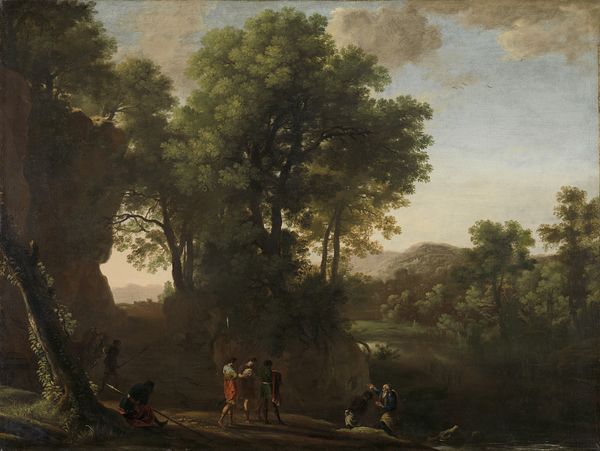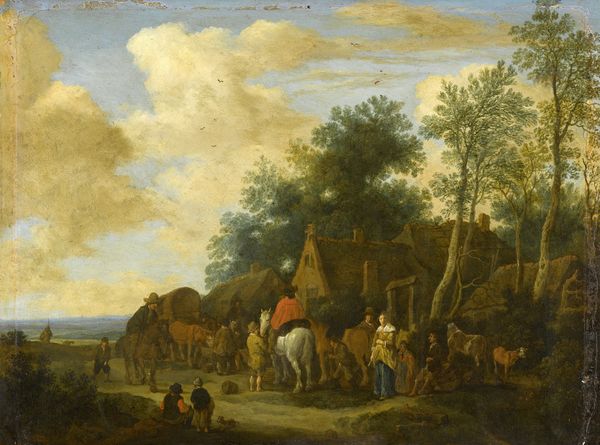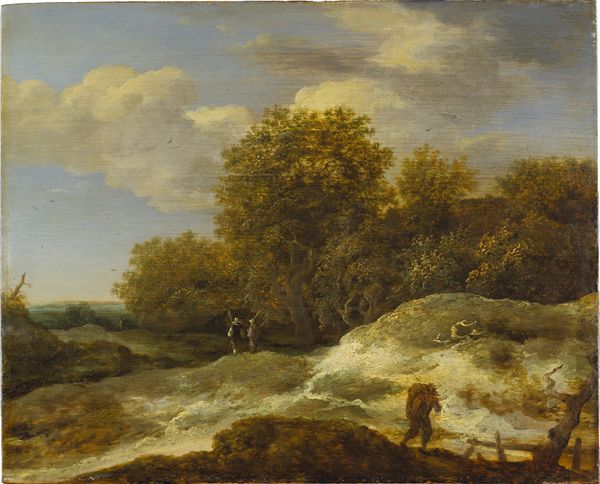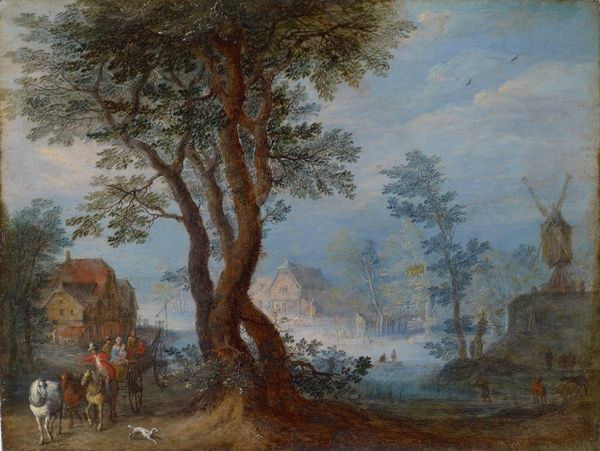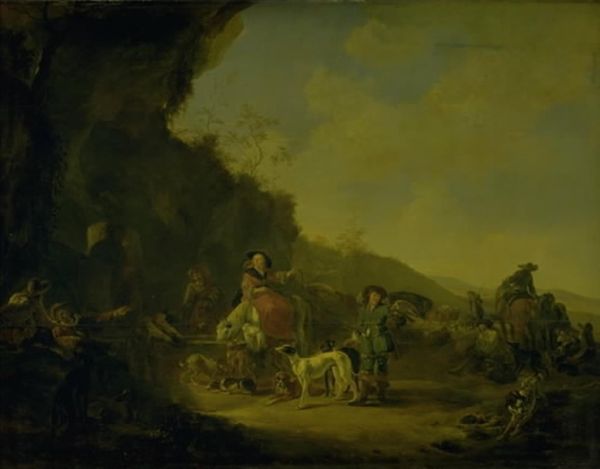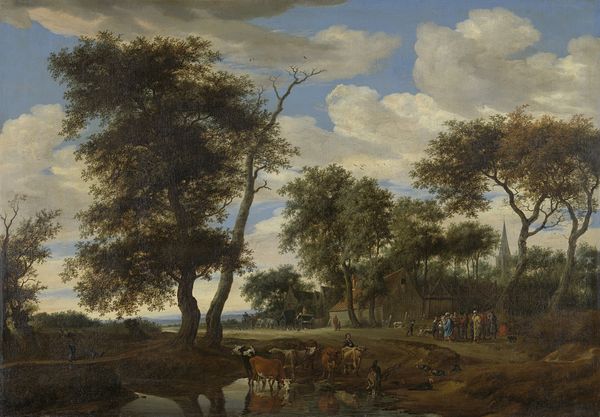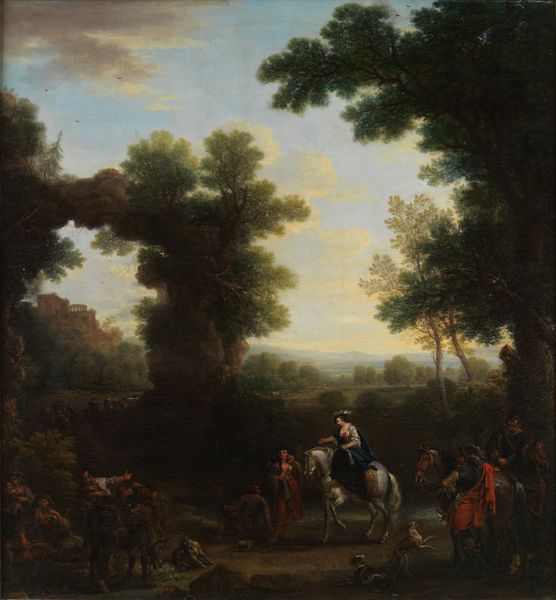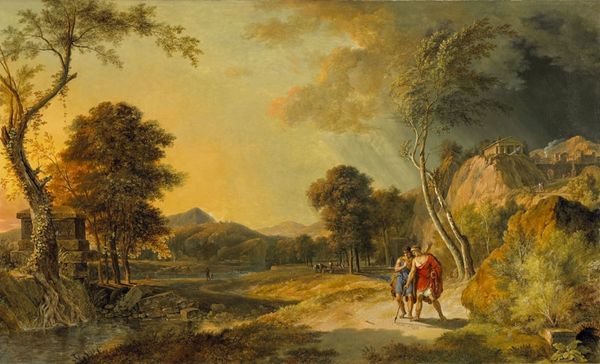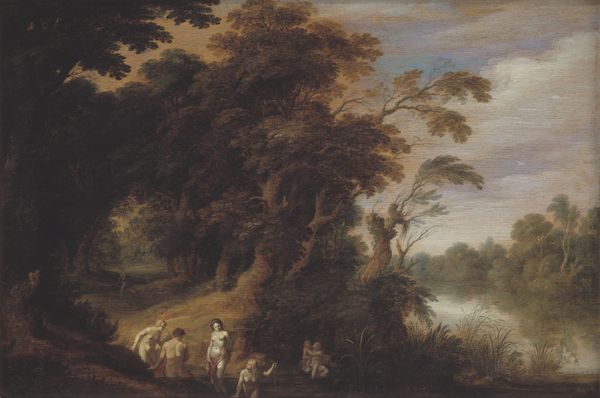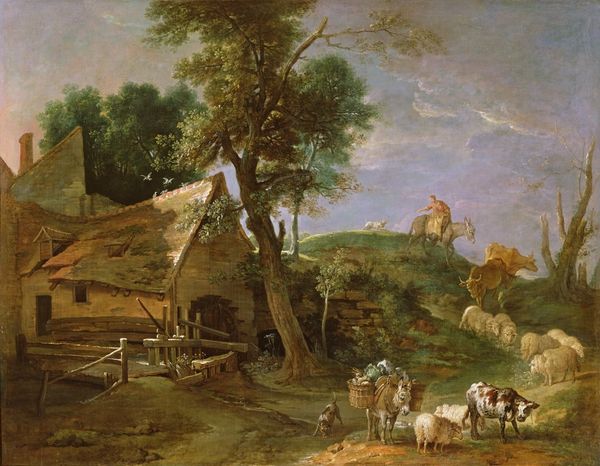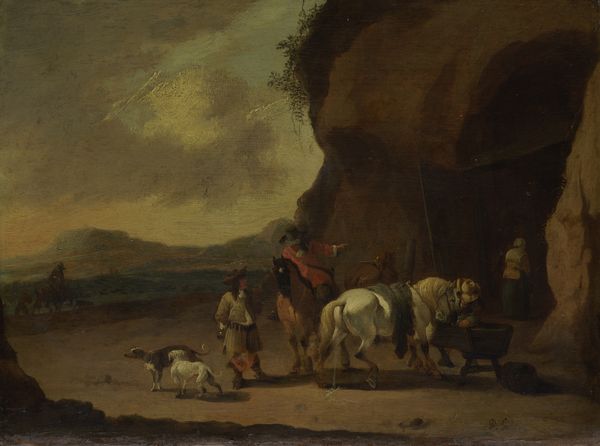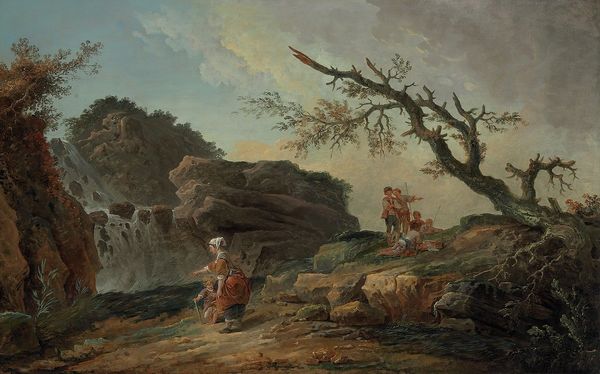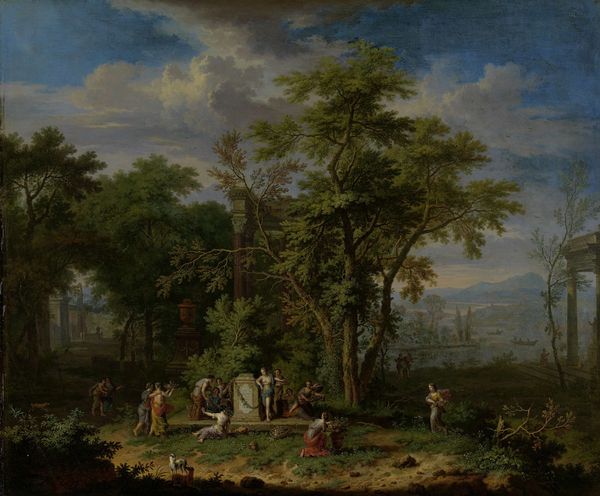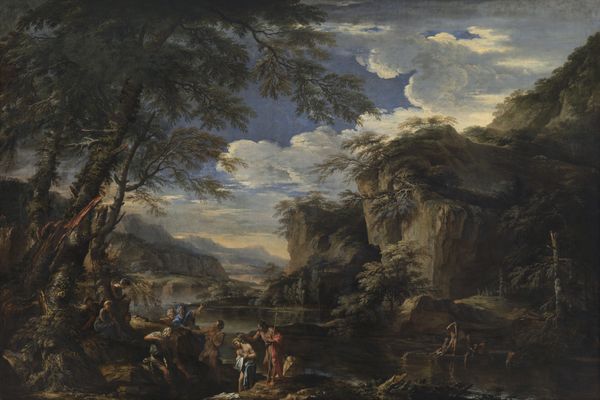
painting, oil-paint
#
baroque
#
painting
#
oil-paint
#
landscape
#
figuration
#
mythology
#
painting painterly
#
history-painting
Copyright: Public domain
Curator: Immediately, I'm struck by the pervasive, almost triumphant use of light throughout. It feels staged, like a theatrical production. Editor: Indeed. You are looking at Pieter Brueghel the Younger's "The Triumph of David over Goliath," painted in 1619. It's a sprawling landscape depicting the return of David after his victory. The artwork, an oil painting now housed in the Museo del Prado in Madrid, presents an interesting fusion of biblical narrative within a sweeping panorama. Curator: Brueghel seems more interested in pageantry than piety. Note how the artist orchestrates the groups on the left and right. What symbols are intertwined? This victory scene unfolds against a rather imposing natural setting, almost overshadowing the human drama. The landscape seems to absorb David’s achievement. Editor: The victory, in the biblical narrative, symbolizes much more than simply overcoming an enemy. David represents divinely sanctioned leadership, but even more than that: the underdog defeating an unconquerable giant. It represents a fundamental power shift, as much as divine intercession in worldly affairs. Notice how that triumphant procession echoes historical patterns where the spoils of war are followed by civic acclamation. Curator: The way Brueghel handles the Baroque style contributes greatly. Look at how it embraces asymmetry through dynamic angles, as well as by his layering of detail. Notice the brushstrokes. I sense that these create more depth than simply showing the details of the setting. How does that all speak to cultural values or beliefs of the time? Editor: These brushstrokes aren’t just details; they serve to depict that feeling of power, of overwhelming movement and unstoppable victory. As the painting's title says, this piece highlights triumph. It celebrates strength but reminds us how collective spirit is the wellspring from which leaders emerge, sanctioned by both divine fate and human acclamation. Curator: Well, that final impression does stick, the sheer scale makes us understand it as much more than one moment. It is hard to find David or Goliath, specifically; the impact really resonates as the story's deeper symbolism comes forward. Editor: Quite. Brueghel doesn’t simply depict history, it creates a resonant icon of shared hopes and celebrated accomplishments, embedded deep within a collective consciousness.
Comments
No comments
Be the first to comment and join the conversation on the ultimate creative platform.
